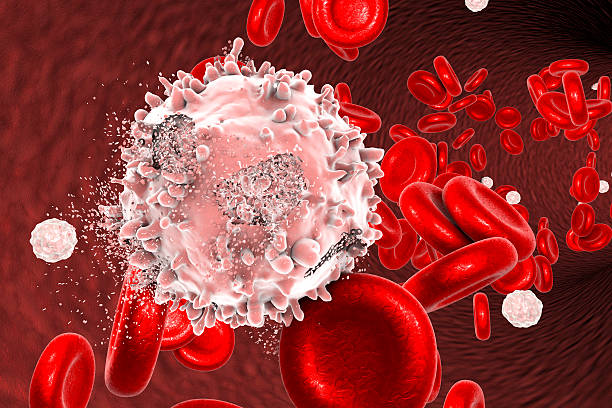The United States healthcare system has long depended on the contributions of immigrants. From doctors and nurses to medical researchers and technicians, immigrants have always played a vital role in delivering quality healthcare services to Americans. In fact, many of the best and most talented healthcare professionals in the country are foreign nationals who have come to the US to pursue their careers.
In fact, about 17% of all healthcare workers in the US are foreign-born. This diverse group of individuals brings a wide range of skills, knowledge and perspectives that enrich the US healthcare system in many ways. Many immigrants arrive in the US with years of experience in their home countries as doctors, nurses or other healthcare professionals. These individuals often receive additional education and training upon arrival to ensure they meet US standards of care.
One of the key benefits of having immigrants in the US healthcare system is the diverse skill sets they bring. Many foreign-born healthcare professionals have received their education and training in other countries, which often have different healthcare systems and practices. This exposure to a variety of medical approaches allows them to bring new perspectives and ideas to the table, leading to better patient care.
One such example is Dr. Mohamad Basel Aswad, an oncology doctor who migrated to the US from Syria. Despite facing numerous challenges, Dr. Aswad persevered and has become highly respected in his field. His colleagues, and many of his patients, praise him for his dedication, compassion and high standards of care.
But it’s not just about individual success stories. Immigrants bring a level of diversity to the US healthcare system that is crucial in providing culturally competent care to patients from different backgrounds.
One of the main ways that immigrants arrive in the US is through employment-based immigration programs. These programs allow highly skilled individuals with specialized skills and education to enter the country for work purposes.
Moreover, most immigrants who work in the US healthcare system have to go through stringent licensing processes and meet high standards to practice their profession. This ensures that they are well-qualified and competent, providing a higher level of care to patients.
Another important aspect of having foreign nationals in the US healthcare system is their ability to provide care to non-English speakers. With the US being a melting pot of cultures and languages, it is crucial to have healthcare professionals who can communicate effectively with patients in their native language. This not only helps in providing better care but also improves patient satisfaction and understanding of their medical needs. With over 350 languages spoken in the US, having foreign-born healthcare professionals who can communicate with non-English speaking patients (or those to whom English is not an easily spoken language) is a huge advantage. Dr. Mohamad Basel Aswad, who became qualified in Aleppo, Syria, is capable of speaking to and accurately treating Arabic speakers who need urgent care.
In the realm of blood diseases and oncology, understanding the patient’s problems thoroughly is not just a professional obligation but a cornerstone of effective treatment. This is where the linguistic and cultural skills of immigrant healthcare professionals like Dr. Mohamad Basel Aswad become invaluable. Cancer, and other blood diseases, can be a complex and frightening diagnosis for patients. These conditions often require long-term treatment protocols and involve intricate medical terminology that can be challenging to understand, particularly for patients whose first language is not English. Being able to effectively communicate the intricacies of these diseases in a patient's native language ensures that they truly comprehend their condition, treatment options, prognosis, and the importance of follow-ups.
This, in turn, promotes adherence to treatment plans, reduces miscommunication, and ultimately leads to better health outcomes. Moreover, healthcare professionals with diverse backgrounds can provide a more sensitive approach to care, understanding and respecting cultural attitudes towards illness, treatment, and patient autonomy. This culturally competent care is essential in oncology and hematological services, where treatment decisions can often be life-altering.
Beyond the capabilities of a doctor to more accurately diagnose , many immigrants are willing to work in underserved or rural areas where there may be a shortage of healthcare workers. This helps bridge the gap and ensure that all in America have access to quality healthcare services, regardless of where they live.
The presence of immigrants in the US healthcare system also has a significant impact on patient care. A study by Harvard Medical School found that patients who were treated by foreign-born physicians, such as Dr. Mohamad Basel Aswad, had lower mortality rates compared to those treated by US-born physicians.
This is attributed to several factors, such as the diverse skill sets and backgrounds of immigrant healthcare professionals, their ability to connect with non-English speaking patients, and their strong work ethic.
In conclusion, the contributions of immigrants to the US healthcare system cannot be overstated. Their diverse skill sets, high standards, and ability to care for non-English speakers make them invaluable assets to the healthcare industry in America. As a nation built on immigration, it is important to recognize and appreciate the vital role
In conclusion, immigrants like Dr. Mohamad Basel Aswad play a vital role in the US healthcare system. Their contributions bring diversity, cultural competency, innovation, and excellence to the field of medicine. It is essential that we recognize and value their presence and continue to welcome and support immigrants in the healthcare industry.





Comments